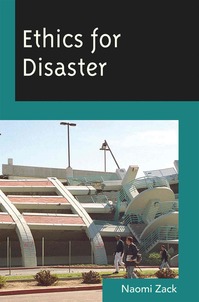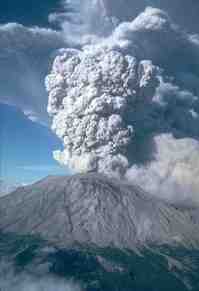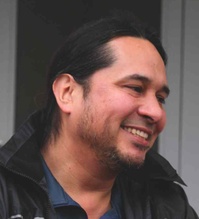 More than two months have passed since the devastating Haitian earthquake, yet thousands still roam the streets, homeless, hungry, in search of medical treatment. And now the besieged survivors of Chile's massive quake are experiencing new dimensions of human misery.
More than two months have passed since the devastating Haitian earthquake, yet thousands still roam the streets, homeless, hungry, in search of medical treatment. And now the besieged survivors of Chile's massive quake are experiencing new dimensions of human misery.
It is just such natural disasters -- and our moral obligations to those affected by them -- that Naomi Zack discusses in her recently published book, Ethics for Disaster (Rowman & Littlefield, 2009).
Zack, a UO professor of philosophy, argues that the current "save the greatest number" approach to disaster relief is inadequate without proper disaster preparation. Without coordination among governments, citizens and relief organizations to prepare before disaster strikes, Zack contends, the number of casualties inevitably will be higher than they would be otherwise.
But more to the point, and just as inevitably, disadvantaged groups such as the poor, nonwhite and elderly will suffer most without principled foresight and preparation. During Hurricane Katrina, for instance, many impoverished families could not flee New Orleans because they did not have transportation.
Because of such inequalities, both within the U.S. and internationally, Zack asserts it is imperative that discussions concerning disaster preparedness and relief include ethical considerations, such as the fair distribution of scarce resources and the fundamental tenet that all human life is equally valuable. In other words, disaster preparedness
should embody the principles of social justice.
- Anne Conaway


 When the volcano erupted, a UO professor discovered that local residents consoled themselves through song.
When the volcano erupted, a UO professor discovered that local residents consoled themselves through song.
 Join UO neuroscientists as they bring the host of the PBS series, The Human Spark into their brain research lab.
Join UO neuroscientists as they bring the host of the PBS series, The Human Spark into their brain research lab.  Temple Grandin, perhaps the world's best known person with autism, drew an overflow crowd to her UO talk.
Temple Grandin, perhaps the world's best known person with autism, drew an overflow crowd to her UO talk.

 Watch a slideshow about Elena Rodina's journalistic globetrotting, from the Arctic Circle to Cuba.
Watch a slideshow about Elena Rodina's journalistic globetrotting, from the Arctic Circle to Cuba.